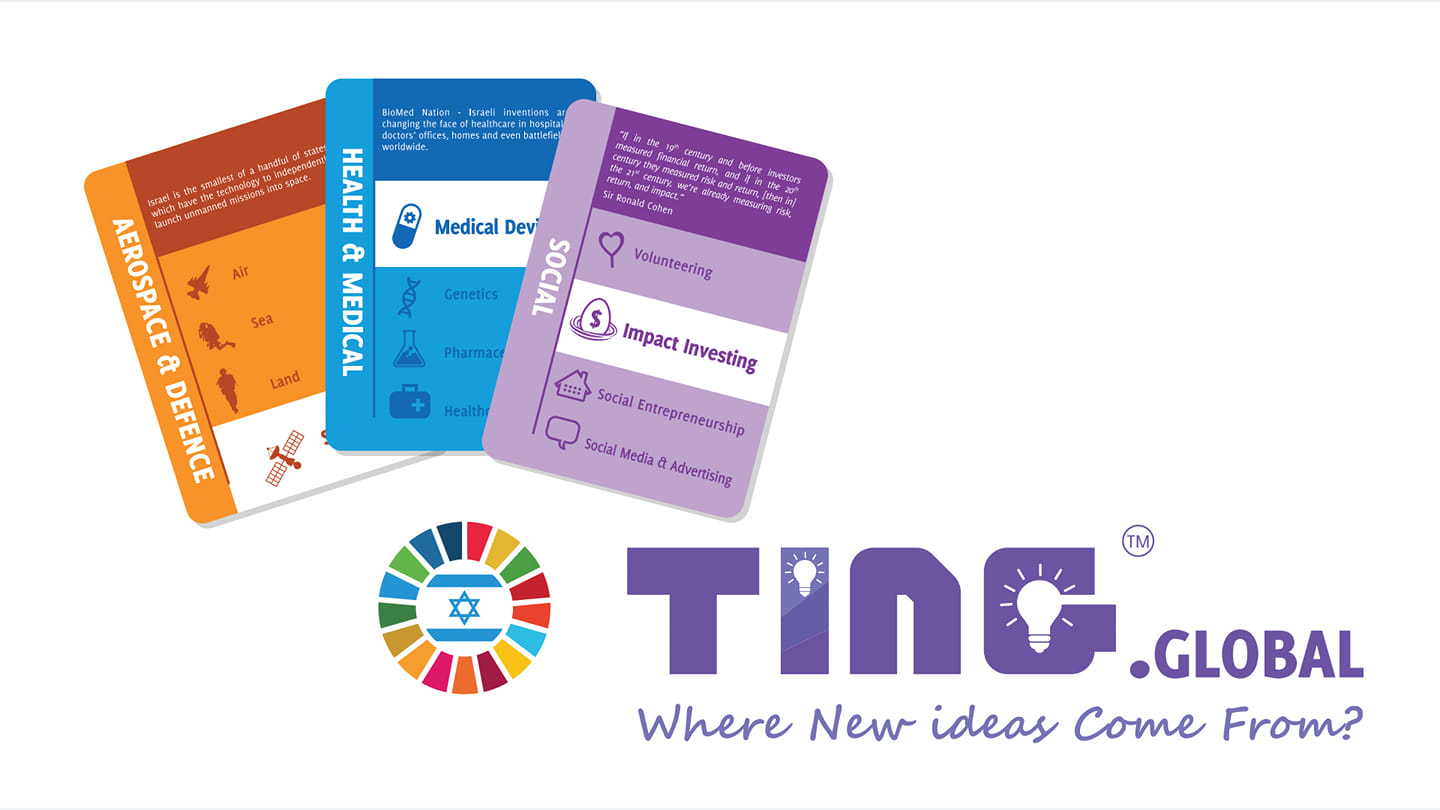Reduced Inequalities


Home » Reduced Inequalities » SDG 10- TING.Global — Games that Inspire
SDG 10- TING.Global — Games that Inspire
One of the great ironies about the Start-Up Nation is that there still remain scores of citizens without access to technology because they can’t afford it. Enter TING —The Innovation Nation’s Games — to level the playing field with affordable card games that develop entrepreneurial thinking.
One morning several years ago, Sharon Gal Or of Galorian Creations woke up and thought, “The digital era is not about the tools or the platforms; it is about the culture – the intelligent management of human emotions; Therefore in order for us to effectively use technologies such as blockchain, AI & big data we need first to make sure that people are ready and make sure to prepare them for the upcoming changes.”
Galorian is a strong upholder of the UN’s SDGs, and with their TING cards acting as an equalizer they more than achieve SDG number 10 – Reduced Inequalities, specifically target 10.2 which reads: “By 2030, empower and promote the social, economic and political inclusion of all, irrespective of age, sex, disability, race, ethnicity, origin, religion or economic or other status.” TING cards are printed and packaged by members of ILAN, an Israeli foundation for people with neuromuscular disabilities. In other words, TING is reducing inequalities in more than one way.
Related articles


SDG 10- The OECD is Calling
Reduced Inequalities Something strange is going on. It seems that almost every time they appear together publicly, the OECD talks about diversity while the Israelis


SDG 10 – Real-Time Safety Net
Reduced Inequalities Who takes care of civilian victims when rockets fly overhead? Not a question usually asked, of course, unless you live in Israel –


SDG 10 – Impact Progress for East Jerusalem
Reduced Inequalities It has been a noisy few months in Israel. Not just on the judicial reform issue, mind you – also concerning social impact



















